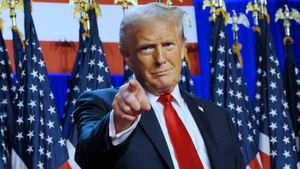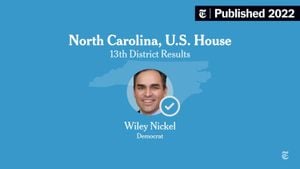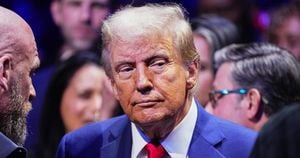Former Prime Minister Imran Khan of Pakistan faces significant challenges as he campaigns for the position of Chancellor at the University of Oxford from his prison cell. Khan, who previously captained the celebrated national cricket team, is known for his Harvard and Oxford education, where he studied Philosophy, Politics, and Economics (PPE). Having helped to bring cricket glory to Pakistan, Khan is now aiming to make headlines for pushing the boundaries of traditional leadership roles, by entering the race for Oxford University Chancellor amid controversy and legal troubles.
Currently imprisoned, Khan’s candidacy has sparked a mixed range of responses from various stakeholders, with some praising his dedication to the educational institution and others raising serious concerns. The fallout from his legal troubles, most prominently his corruption conviction, is shadowing his aspirations as he seeks to portray himself as a steadfast advocate for diversity, inclusion, and equality – values he claims to uphold.
Lord Daniel Hannan, one of the notable backers of Khan’s candidacy, commended him for being a prominent figure whose contributions extend beyond sports and politics to philanthropy and governance. Hannan’s endorsement resonates strongly within the alumni network, which is poised to vote on the candidacy of Khan along with several other high-profile figures, including Lord William Hague, former foreign secretary, and Lord Peter Mandelson, former Labour cabinet minister.
Khan’s campaign, set to begin voting later this October, seeks to highlight the resilience and commitment he believes define both his personal and political life. He has expressed, from jail, his desire to give back to the university, noting the foundational impact Oxford had on him during his formative years. Khan remarked, “I am committed to giving back to the world the resilience, determination, and integrity life has taught me, even when the odds are stacked against me.” This commitment, as noble as it may sound, stands at odds with the significant criticisms lodged against him, which question his suitability for the ceremonial role.
Concerns about Khan’s past have come to light, particularly those addressing allegations of his support for the Taliban and controversial remarks about various topics, including women’s rights. A formal petition backed by several disgruntled former students and academics has been presented to the university. The petition cites troubling actions and statements from Khan throughout his political career, stating: “While Mr. Khan is a prominent figure, there are significant aspects of his public and personal record deeply troubling and deserving of careful consideration.”
The criticisms laid out include Khan’s past coupled with remarks referring to the Taliban as “freedom fighters” during his earlier political career. This legacy of contentious opinions led some parties to question Khan’s integrity and grasp of human rights, as his statements have been interpreted as harmful to women, with some arguing he has perpetuated misogynistic views. His past interactions with extremists and comments on various human rights cases have contributed to the complex narrative surrounding his candidacy.
Oxford University’s administration confirmed they have received multiple communications conveying well-founded fears concerning Khan’s troubled history, including allegations of corruption. Indeed, Khan’s conviction related to the Toshakhana case presents significant red flags, raising doubts about his adherence to ethical standards and governance—qualities revered by many within Oxford’s culture.
Khan isn’t the only candidate vying for the prestigious role, as many other political figures enter the fray. The upcoming election marks the first time external candidates from outside traditional academic circles have contested this coveted position, which was previously held by Lord Chris Patten, and before him by notable leaders such as Harold Macmillan and Roy Jenkins. The dynamics of this initial election have already shifted as various personalities bring different backgrounds and experiences to the table.
Among the crowd, Dominic Grieve, former Attorney General, has joined the race alongside Khan. Grieve emphasizes the need for academic freedom, which resonates with many scholars at Oxford. Yet, he too will face the challenge of distilling his message above the noise created by prominent political figures. The successful candidate, whoever it may be, will undertake significant responsibilities to advance Oxford’s agenda, representing the university for ten years.
While Khan’s supporters and critics continue to clash over his suitability, the alumni community’s right to vote creates additional complexity around this candidacy. Over 250,000 alumni members will vote online, weighing the legacies and contested records of each candidate. Khan's historical relationship with Oxford, alongside the aloofness of the current political climate, sets the stage for what could be one of the most divisive elections the university has witnessed.
Despite tremendous challenges, Khan remains steadfast, seeing his candidacy not just as personal ambition but as a platform to reclaim his narrative. His emphasis on giving back to the institution is juxtaposed against the critique of his past; both aspects illuminating the contrasting facets of his life and leadership. Whether Khan can sway voters accustomed to extraordinary standards remains to be seen, but his campaign undoubtedly captures the world’s attention as it intertwines with the political crossroads of Pakistan and influences perceptions on global education.



